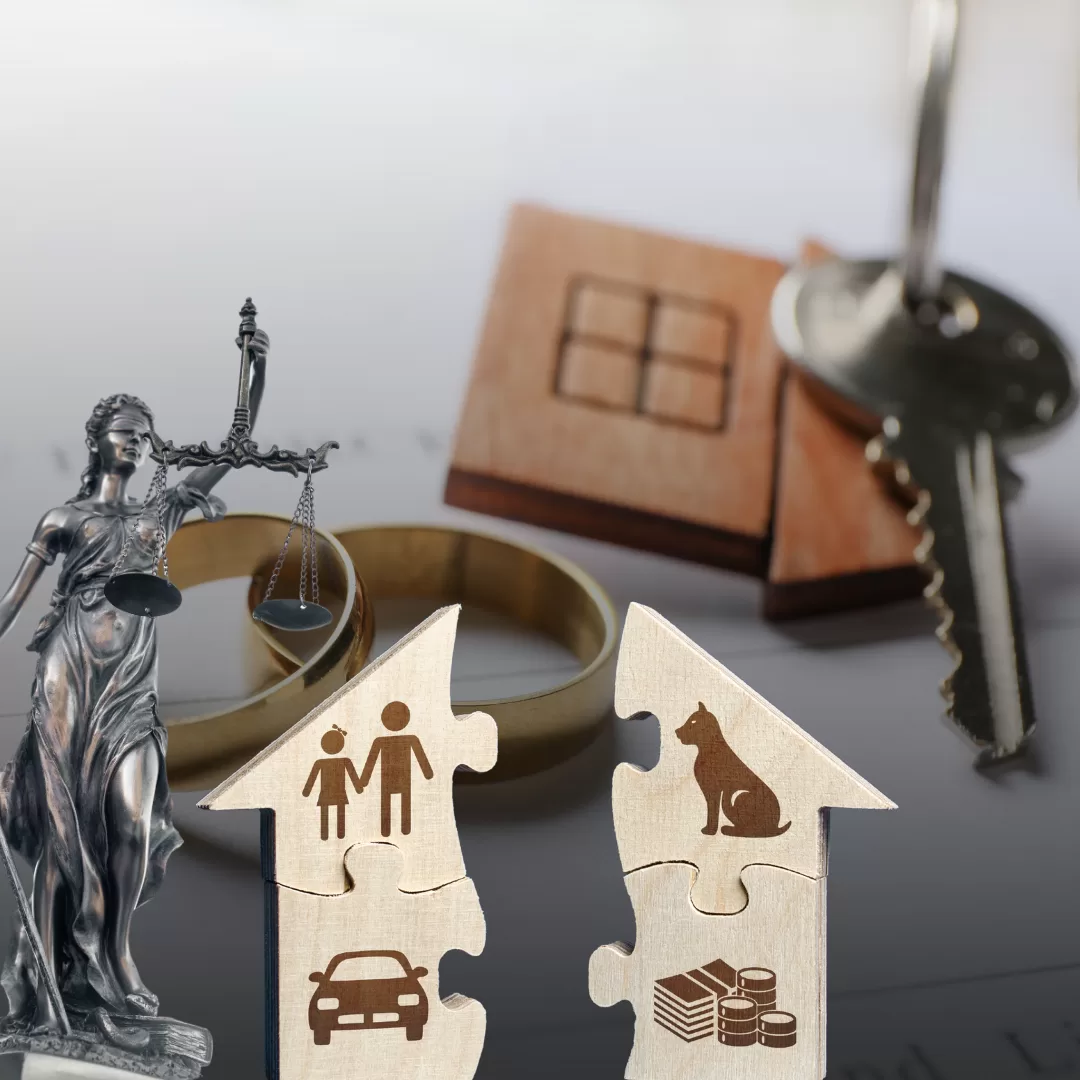If you’re going through a divorce in Maryland, understanding how marital and nonmarital property is classified is vital for protecting your financial future. Let’s break it down in simple terms so you can approach your situation with clarity and confidence.
What Is Marital Property?
Marital property includes all assets acquired during your marriage, no matter whose name is on the title. Think of it as the things you’ve built together during your relationship—like your home, bank accounts, retirement plans, or even that car you both rely on.
Key points about marital property:
- Mixing funds can blur lines: For example, if you deposit an inheritance into a joint account or use pre-marriage savings to pay a shared mortgage, the court may consider it marital property.
- Family-use property matters: Items like your home or family car are often treated differently, especially if children are involved. The court might let the parent with custody use these items to maintain stability for the kids.
Tip: To protect non-marital funds (like inheritances), keep them separate from joint accounts and document everything carefully.
What Is Non-Marital Property?
Non-marital property is essentially “yours alone.” These are assets you owned before the marriage or received as a gift or inheritance during the marriage—provided you didn’t mix them with marital funds.
Examples of non-marital property:
- Gifts or inheritances intended for you alone.
- Property owned before you got married.
- Assets from a cohabitation period before your marriage.
Tip: Keep records like receipts or deeds to prove when and how you acquired non-marital property. This can save you headaches later. Learn more about avoiding mistakes in our 7 Financial Divorce Mistakes to Avoid in Maryland guide.
When Property Is a Mix of Both
Some assets are part-marital and part-non-marital. A common example? A home you owned before marriage but used marital funds to pay the mortgage. The court will figure out what portion belongs to the marriage and what doesn’t.
What the court looks at:
- Contributions each spouse made.
- How the property was used during the marriage.
Tip: Work with a family law attorney to trace contributions clearly. It’s crucial for fair division. If you’re dealing with complex assets like stock options or deferred pay, visit our Divorce Settlements and Executive Pay in Maryland blog for more insights.
Maryland’s Equitable Distribution Rules
Maryland courts focus on dividing marital and nonmarital property fairly, not necessarily equally. Judges consider factors like each spouse’s contributions, financial needs, and the length of the marriage.
How division works:
- The court can’t transfer property titled in your name to your spouse, but it can balance things with a monetary award.
- For indivisible assets (like your house), one spouse might “buy out” the other, or the court may order a sale and split the proceeds.
Tip: Prepare a full financial overview, including your contributions and expenses, to strengthen your case. For guidance on organizing your finances, read Your Essential Guide to Financial MD Divorce Document.
Protecting Property During Separation or Divorce
Even after separating, any property you acquire could still count as marital property. Yes, even lottery winnings! Marital debts also factor into property division, so keep track of everything.
Steps to protect your property:
- Document all assets with details like purchase dates and sources of funds.
- Avoid mixing personal assets with joint accounts.
- Consult a Maryland family law attorney to stay on top of state-specific rules.
For more advice on uncovering hidden assets or financial deception, visit Divorce Fraud and Financial Deception in Maryland.
What Happens When a Spouse Passes Away?
If a spouse dies, the law governs how property is divided. Jointly owned property typically goes to the surviving spouse, but wills and Maryland’s intestacy laws may play a role in distributing other assets.
Tip: If you’re creating a will or reviewing one, a family law attorney can help ensure your wishes are respected.
Let’s Protect Your Rights and Secure Your Future
Contact Divorce with a Plan—your trusted Maryland family law firm—today at (240) 269-3592 for advice tailored to your situation. We’re here to listen, support you, and help you achieve a fair outcome for your family.






